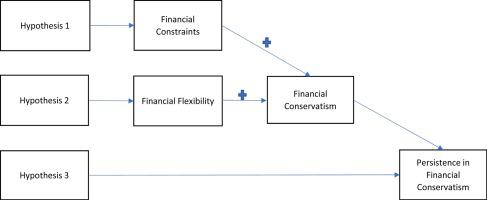Research in International Business and Finance ( IF 6.3 ) Pub Date : 2021-06-26 , DOI: 10.1016/j.ribaf.2021.101483 Michael Machokoto , Chimwemwe Chipeta , Nadeem Aftab , Geofry Areneke

|
Using a large sample of emerging market firms over the period 1980–2015, we document a high prevalence and persistence of financial conservatism. Specifically, 31% of the African firms have ultra-low leverage ( than 5%), with 42% and 11% having non-positive net-debt (total debt cash) and no debt (zero-levered), respectively. In further analyses, we find that macroeconomic conditions have a muted effect on financial conservatism. Our results suggest that financial conservatism in emerging markets is due to two main factors; (1) credit constraints, and (2) the desire to attain or enhance financial flexibility. The former calls for pro-market policies that improve access to external finance. At the same time, the latter, which results in the accumulation of cash reserves at the expense of current investments, is a strategic choice aimed at preserving or enhancing financial flexibility. Our results are robust to using alternative sub-sampling, model specifications, definitions of variables and estimation techniques.
中文翻译:

新兴经济体企业的财务稳健性
我们使用 1980 年至 2015 年期间的大量新兴市场公司样本,记录了金融保守主义的高度流行和持续存在。具体而言,31% 的非洲公司拥有超低杠杆( 5% 以下),42% 和 11% 有非正净债务(总债务 现金)和无债务(零杠杆)。在进一步的分析中,我们发现宏观经济条件对金融保守主义的影响不大。我们的研究结果表明,新兴市场的金融保守主义归因于两个主要因素:(1) 信贷限制,以及 (2) 获得或增强财务灵活性的愿望。前者呼吁制定有利于市场的政策,以改善获得外部融资的机会。同时,后者以牺牲当前投资为代价来积累现金储备,是一种旨在保持或增强财务灵活性的战略选择。我们的结果对于使用替代子抽样、模型规范、变量定义和估计技术是稳健的。









































 京公网安备 11010802027423号
京公网安备 11010802027423号